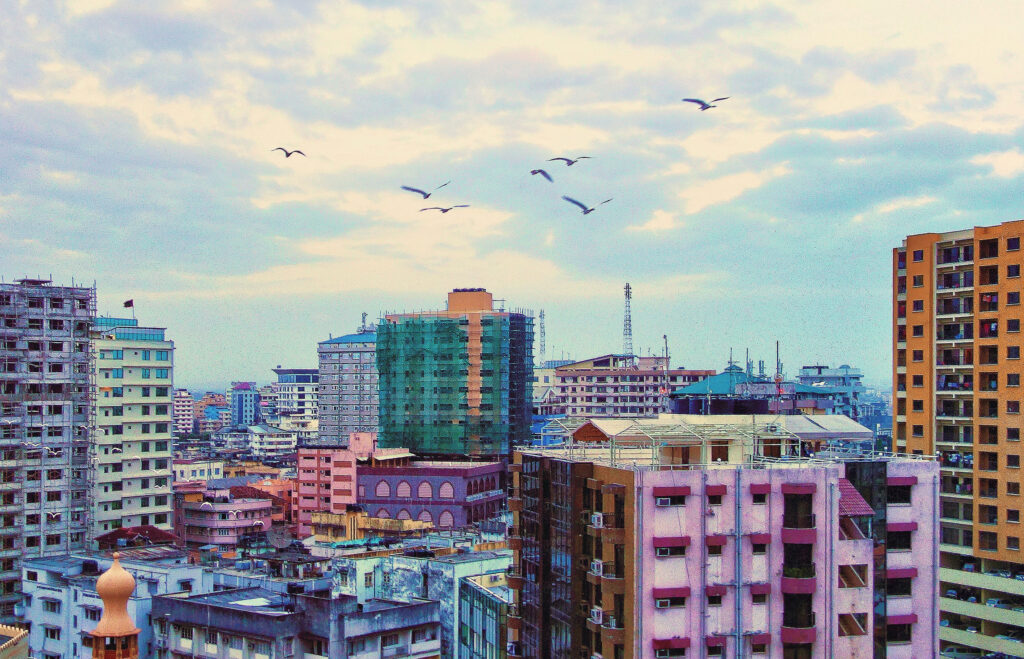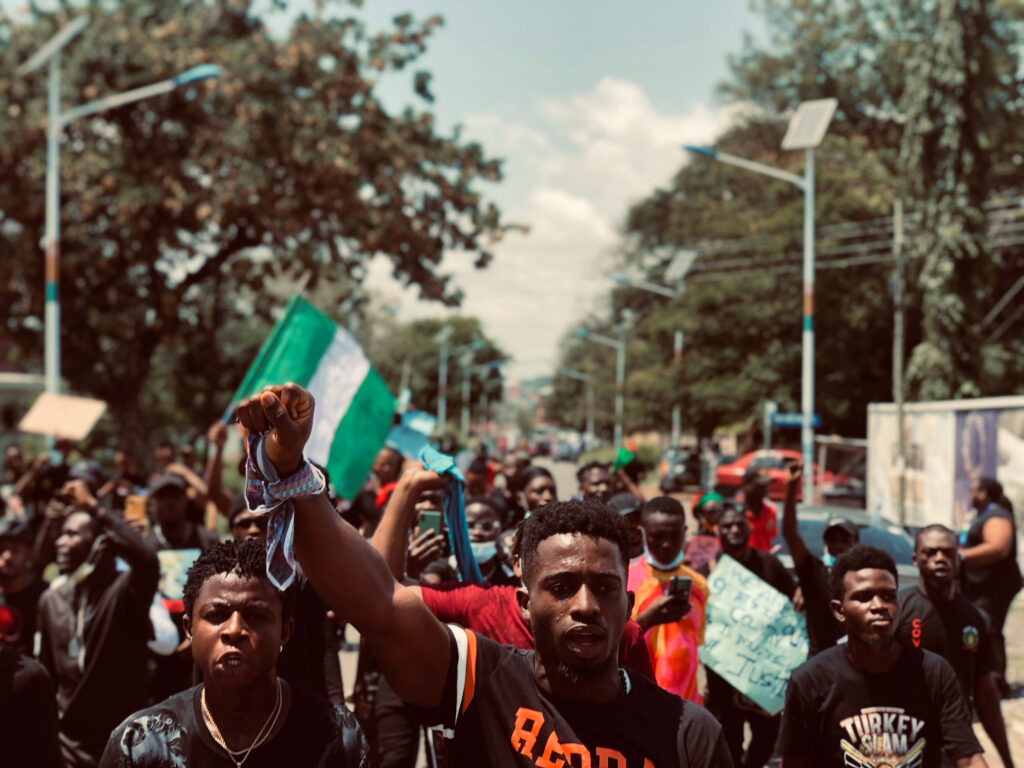Volcanoes are erupting in The Philippines, but on-fire Australia received some welcome rain. The Iran war cries have been called off and The Donald’s military powers are about to be hamstrung by the Senate. Meanwhile, his impeachment trial is starting, and we’re all on Twitter for a front-row seat.
Africa Is Finally Starting to Act Independently
From the economy to mRNA to TikTok stars, it’s time to celebrate the continent’s steps forward.

Europe’s intent to rule over Africa is not a new concept. From the period of colonialism until now, foreign powers have hovered mightily over the affairs of African states, lingering on after independence was granted—France, for instance, still retains a large military presence in Africa despite objections to it. Much of the damage, though, was done during the colonial era. Several African countries were stripped of their identity and culture, succumbing to that of their colonial masters’ as they were beaten down to submission. The inferiority that arose as a result of this intercontinental bullying has led to internal challenges like coups, secessions, wars, and bouts for independence. These struggles are much covered in Western media even though they are now far less common.
But nowadays, as the air begins to clear and globalization continues, many African nations and their citizens are beginning to see colonialism for what it was—an invasion. They are starting to take more matters into their own hands, even to the point of shunning Western nations in an attempt to gain their footing after years of Stockholm Syndrome and understanding colonial rule as a positive sine qua non. Matters like these show that African countries, who have spent the better part of their independence depending on foreign powers to provide certain necessities for them, are learning to fend for themselves.
For the first time in a long time, Africa might be realizing its greatness and ability to stand on its own two feet. From music to technology to politics and even agriculture, African states are doing much better these days, and there seems to be a slow but steady awakening to this in the hearts of its citizens.
The economy
Africa has seen head-turning GDP growth from trade, agriculture, and natural and human resources in the last 60 years. Pre-pandemic, some of the growth was stunning: between 2000 and 2017, for instance, sub-Saharan Africa grew 300% and North Africa over 250%. In sub-Saharan Africa in particular, this came with plummeting infant mortality rates and ascending life expectancy as well as literary rates. According to World Bank estimates, in 2020 Guinea was #4 in GDP growth worldwide and Ethiopia #6. The latter has been within the top ten spots for the last twenty years.
And while the continent suffered economic losses from the Covid-19 pandemic, they were fewer than the rest of the world, and it is emerging steadily out of the recession. East African nations have been especially buoyant, with countries like Djibouti and Kenya rising fast out of contraction.
What’s more, “African countries have seized the opportunity of the crisis to foster structural and macroeconomic reforms that could pave the way for increased inclusive growth over the long-term,” wrote The World Bank in 2021, which has included things like better public utilities and boosted digital economies.
The Covid-19 pandemic
The predictions of the pandemic’s impact on Africa were dire, but the worst was averted. And despite data pointing to potential undercounts in cases and deaths, the continent as a whole has been resilient, with several countries putting into action public health plans from prior outbreaks like Ebola. Rwanda’s success story in limiting Covid’s spread, for example, rivaled that of wealthier and more advanced nations, from introducing Covid-detecting robots to providing free tests and treatments despite limited resources.
While large proportions of the continent remain unvaccinated, South Africa has been a standout when it comes to vaccine science. Pfizer announced in July 2021 that it had partnered with the Biovac Institute in Cape Town to produce the first sets of coronavirus vaccines in South Africa. In early 2022, Afrigen Biologics and Vaccines, a South Africa-based biotech company, successfully created their own mRNA vaccine. And of course, it was scientists from Botswana and South Africa who first alerted the world to the Omicron variant.
Democracy and good governance
While democracy has been well on the rise in Africa since the 1980s, more recent years have had some asking whether African democracy is “backsliding.” The Institute for Security Studies, however, sees things differently. “Evidence suggests that while there are pockets of concern,” wrote an analyst in 2021, “a robust democratic culture is in fact growing in many parts of the continent.” In recent years, Liberia, Sierra Leone, Ghana, The Gambia, Kenya, and Malawi have all matured democratically, the last in particular bearing the acclaim of being the only country in the world “whose democracy strengthened during the Covid-19 lockdowns, after it became the first African country to overturn a fraudulent election through legal means and conduct a free and fair follow-up election,” says a report from the Council on Foreign Relations.
Other African nations, like Cape Verde, have even turned democratic good governance into a calling card. Long regarded as Portugal’s “ugly duckling colony,” since its independence in 1975, Cape Verde has become a swan through investing in tourism, education, and healthcare. Life expectancy in the country has risen from 48 in the sixties to over 70 today. In 2008, the country was moved from the United Nations’ least developed countries list to the middle income countries list, and has enjoyed an economic growth of over 5% every year since 2000, according to The Business Report. It has maintained a peaceful multiparty democracy since 1991 and advocates for social performance and human development.
LGBTQ rights
An area where a majority of the continent struggles is in its acceptance of sexual orientations— Africa has become infamous for its strict laws against same-sex relationships and acts outside of heterosexuality. Out of 54 African countries, only 22 have legalized homosexuality, and even this legalization doesn’t prevent discrimination and attacks against LGBTQ people.
While the battle to decriminalize homosexuality is ongoing, there are countries that have made significant progress. Cape Verde has had protections for LGBTQ individuals since 2008, making it one of the earliest African countries to decriminalize same-sex acts. In Angola, discrimination against same-sex individuals is punishable by imprisonment. Botswana, Gabon, the Seychelles, Mozambique and Lesotho have also decriminalized same-sex acts, and South Africa stands as the only African country that has legalized same-sex marriage and allows for gay couples to adopt children.
“Knowing, as an African and a member of the LGBTQ community, that there are some countries where I will not be marginalized . . . it is remarkable to see the number of supportive African countries continue to grow and adopt this positivity,” a Nigerian LGBTQ rights activist who declined to be named said in an interview.
The arts
In “softer” matters, too, African nations have done a good job in standing tall, earning a global respect that can only come with fully owning one’s own resources and culture. One prime example is the Nigerian film industry, aptly titled Nollywood. The second largest film industry after Bollywood, it pushes out over one thousand movies a day.
African countries have also grown significantly in the international music scene in the last few years. In 2021, a song by Nigerian artist CKay, in a never-seen-before musical moment for Africans, held the title for the most Shazamed song in the world. Nigeria’s Wizkid, staying true to an undeniably African sound, became the first African act to crack the top ten on the Billboard’s Hot 100 chart. And with the Afro sound permeating international borders, many Western acts are now requesting to be on Afrobeat songs, mutating to accommodate a style that is in complete contrast to theirs. Take folk-pop star Ed Sheeran, who incorporated African flows and melodies into his 2022 collaboration with Nigerian musical superstar’s Fireboy DML. And for South Africans worldwide, the emergence of the Afro-house genre Amapiano on international platforms is just another testament to Africa’s musical voyage to the West and beyond.
For the first time, this month the Pritzker Prize—known as the Nobel Prize of architecture—went to an African, Burkina Faso’s Francis Kere, for his innovative approach to architecture that emphasizes sustainability and community participation.
And the drip of justice has even begun in the case of Africa’s stolen heritage. France, for example, started to return some of Benin’s prized possessions back home, which were stolen by French forces in 1892.
Citizen and anti-colonialist power
In November 2021, French troops swarmed into Burkina Faso and Niger to assist them against Islamist militants that were terrorizing the countries. Regardless of intent, the unasked-for support saw Nigerien and Burkinabé citizens begin a blockade of French troops from entering, choosing to refuse help from the West and instead fight their battles by themselves. Similarly, in January 2022, thousands of Malians, donning the country’s bright colors of red, yellow, and green, poured out in the capital city of Bamako, holding signs that read “Down With France” in protest against economic sanctions.

Nigeria’s most important protests in recent times were the #EndSARS ones of 2020, in which tens of thousands of youths across all 36 states of the country raised their voices against the government for its inaction around the harassment of citizens by corrupt members of the police. (SARS stands for Special Anti-Robbery Squad.) These protests against police brutality expanded to involve Nigerians young and old in many parts of Europe and America, highlighting the political awakening of Nigerian’s citizens and the power of the so-called “Speak Up” generation.
“For the first time, religion and age did not matter when Nigerian youths protested against police brutality in 2020,” said Ayomide George, a Nigerian scholar of international relations. “We fought for our rights, and the world listened. It was a remarkable moment in history.”
The journey might still be long, but Africa is beginning to understand its potential, and is showing signs of maturity and self-dependence. There’s no miracle here. It’s just about time.


